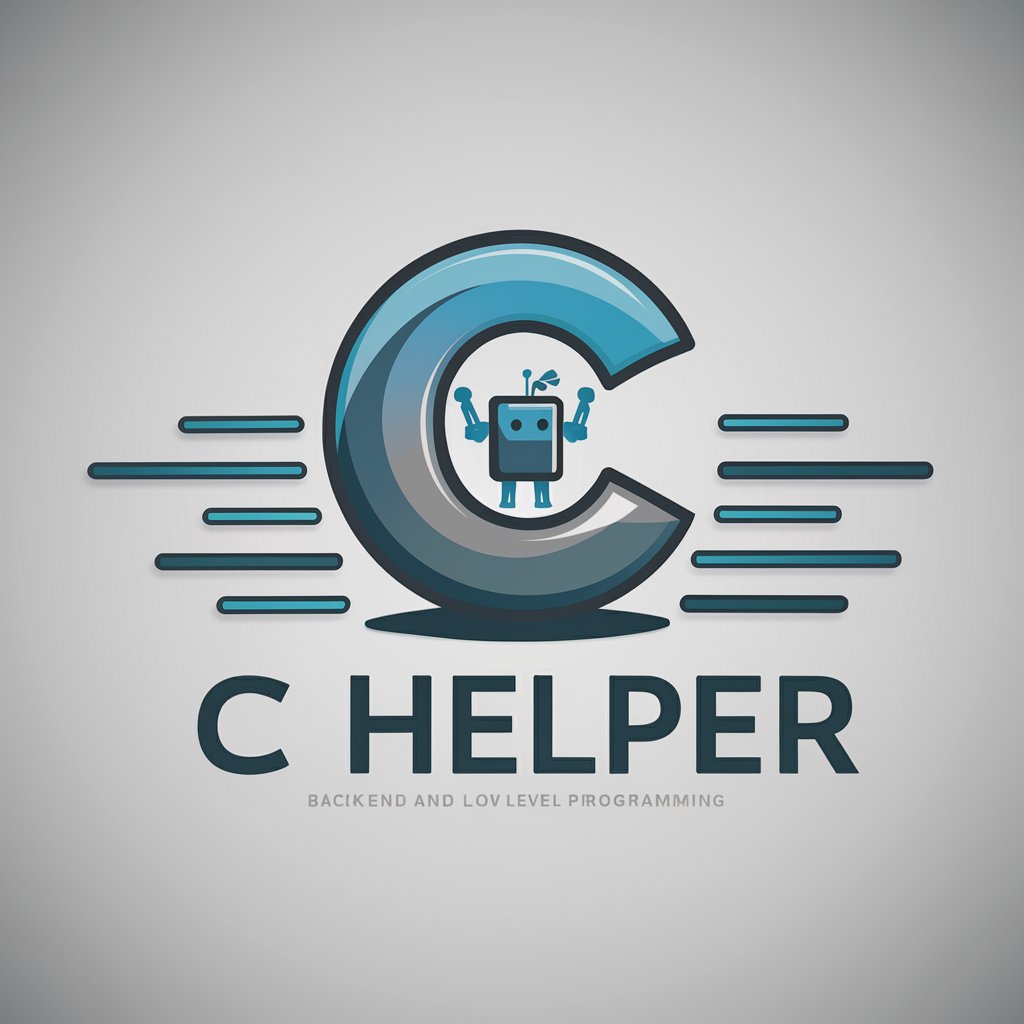4 GPTs for Low-Level Programming Powered by AI for Free of 2026
AI GPTs for Low-Level Programming refer to advanced artificial intelligence systems, specifically designed or adapted to handle tasks in the domain of low-level programming. These tools leverage Generative Pre-trained Transformers (GPTs) to offer tailored solutions for the creation, analysis, and manipulation of system-level software, embedded systems, and firmware. They are crucial for optimizing hardware performance, addressing system-specific constraints, and facilitating direct interaction with hardware components.
Top 4 GPTs for Low-Level Programming are: C++ Helper,C Helper,Ziggurat,Assembly Language for ARM Processors Linux
C++ Helper
AI-Powered Precision for C++ Excellence

C Helper
Empowering C Programming with AI

Ziggurat
AI-Powered Zig Programming Expertise

Assembly Language for ARM Processors Linux
Master ARM Assembly: Unlock Hardware's Full Potential

Distinctive Attributes and Functionalities
AI GPTs tools for Low-Level Programming are equipped with unique features that allow them to adapt from simple to complex functions within the domain. These include deep understanding of assembly languages, machine code, and hardware interfaces. Special features might encompass automatic code generation, error detection and correction in system-level programming, and the ability to simulate hardware interactions. Furthermore, these tools can offer real-time technical support, have capabilities for extensive language learning, and may include web searching, image creation, or data analysis capabilities to support development and debugging processes.
Who Stands to Benefit
AI GPTs tools for Low-Level Programming cater to a wide range of users, from novices interested in learning about system-level programming to seasoned developers and professionals working in embedded systems and firmware development. These tools are designed to be accessible to those without extensive coding skills, offering guided learning paths and automated code generation, while also providing robust customization options for experienced programmers seeking to optimize hardware performance or integrate low-level components into larger systems.
Try Our other AI GPTs tools for Free
Multi-Language Support
Discover the power of AI GPTs for Multi-Language Support: advanced tools designed for seamless multilingual communication, content creation, and language learning.
Home Redesign
Discover how AI GPTs revolutionize home redesign, offering personalized design solutions, project planning assistance, and up-to-date trend insights for enthusiasts and professionals alike.
Material Selection
Discover how AI GPTs for Material Selection revolutionize the selection process with predictive analysis, optimization, and tailored solutions for all users.
Cost Estimation
Discover how AI GPTs revolutionize cost estimation with accurate, adaptable, and user-friendly tools for financial forecasting and budget planning.
App Marketing
Revolutionize your app marketing with AI GPTs - leverage cutting-edge AI to enhance user engagement, content creation, and data-driven strategies.
Technical Tutorials
Discover how AI GPTs transform technical education with personalized tutorials, code generation, and interactive learning, making complex subjects accessible to all.
Expanding Horizons with AI
AI GPTs as customized solutions in low-level programming are revolutionizing how developers interact with hardware, offering unprecedented levels of automation, efficiency, and ease of use. Their ability to learn and adapt to various programming languages and hardware specifications makes them invaluable assets. Moreover, user-friendly interfaces and integration capabilities with existing workflows underscore their potential to streamline development processes across different sectors.
Frequently Asked Questions
What exactly is Low-Level Programming in the context of AI GPTs?
Low-Level Programming involves the development of software that operates close to the computer hardware, such as operating systems, device drivers, and embedded systems. AI GPTs for Low-Level Programming are tools that utilize AI to assist in these tasks, offering capabilities like code generation, simulation, and debugging at the system or hardware level.
Can AI GPTs for Low-Level Programming generate assembly code?
Yes, these AI tools can generate assembly code and even provide insights into optimizing this code for specific hardware architectures, improving performance and reducing resource consumption.
Are these tools suitable for beginners?
Absolutely. While designed to handle complex low-level programming tasks, AI GPTs also provide guided learning experiences and automated functionalities that make them accessible and useful for beginners.
How do AI GPTs adapt to different hardware architectures?
AI GPTs are trained on diverse datasets that include various hardware specifications and architectures. They can adapt their code generation and optimization strategies based on the target hardware's constraints and features.
Can these AI tools integrate with existing development environments?
Yes, many AI GPTs for Low-Level Programming are designed to integrate seamlessly with popular development environments and toolchains, enhancing productivity and offering more sophisticated analysis and debugging tools.
Do AI GPTs support embedded systems development?
Yes, they are particularly useful for embedded systems development, offering capabilities to write, optimize, and debug code tailored for embedded devices.
How do AI GPTs enhance debugging in low-level programming?
AI GPTs can analyze code to identify potential errors or inefficiencies, suggest optimizations, and simulate different operational scenarios to test code against various conditions and hardware configurations.
What future advancements can we expect in AI GPTs for Low-Level Programming?
Future advancements may include even deeper hardware integration, improved code optimization techniques, and enhanced learning capabilities to cover more languages and architectures, providing even more comprehensive support for low-level programming tasks.